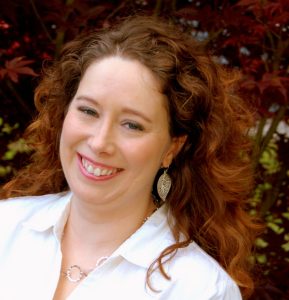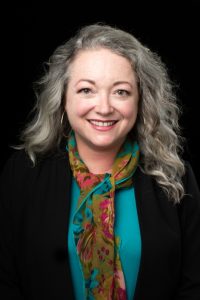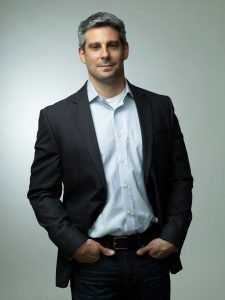Flight for the Future: Embracing EPSCoR’s Experimental Ethos
Keynote Talk Details:
EPSCoR and team science grew up together. EPSCoR led the development of “team science” before the broader research community and helped to define collaborative research. Leaders across the EPSCoR states did this in partnership with the National Science Foundation by promoting inclusive research, supporting collaborations, embracing strategic planning, building a community of practice, and striving for a shared understanding of the critical work that we do together. Through co-developing, applying, iteratively improving, and practicing team science methods, we have seen what was once hard has become customary practice. For the majority of our EPSCoR existence, we have been known as the Experimental Program to Stimulate Competitive Research, recently updating the E to “Established”; here we will highlight the opportunities present in embracing the community’s experimental identity while recognizing the further growth enabled by our established successes. Our collectively developed strengths across EPSCoR jurisdictions provide the foundation on which to build a new future for higher education that is embedded in research – inclusive, experiential, and innovative. Using the analogy of flight, we will engage participants in imagining the future of EPSCoR’s community by embracing our experimental ethos. Where are we? Where do we want to go? How can we get there effectively? How does this change lives and benefit society?
Keynote Speaker Introductions:
 Anne Heberger Marino, MSW, is a consultant, facilitator, and leadership team coach. Called “a social worker for scientists,” Anne helps senior research leaders and their teams be intentional in how they work together on scientific and societal challenges. Through Lean-to Collaborations, the company she founded in 2020, Anne brings 20 years of experience working across disciplines and sectors to help purpose-driven research teams build the capacity they need to traverse the complex terrain of collaborative research.
Anne Heberger Marino, MSW, is a consultant, facilitator, and leadership team coach. Called “a social worker for scientists,” Anne helps senior research leaders and their teams be intentional in how they work together on scientific and societal challenges. Through Lean-to Collaborations, the company she founded in 2020, Anne brings 20 years of experience working across disciplines and sectors to help purpose-driven research teams build the capacity they need to traverse the complex terrain of collaborative research.
Her work builds on her 12-year tenure at the National Academies of Sciences, Engineering, and Medicine, where she served as an internal evaluator, program officer, and her position as a senior program director of the National Academies Keck Futures Initiative (NAKFI), a successful model of fostering new avenues of convergence research. She is the co-author of the book Collaborations of Consequence, published by the National Academies Press in 2018. Her current work focuses on creating and sustaining conditions for successful research collaboration and leadership. Anne has lived in Maine since 2010. In her off-hours, she is an avid reader, hiker, and hockey mom.
 Christine Hendren’s work focuses on developing and applying methods, models, and human processes to integrate and co-create knowledge across boundaries – disciplinary, sectoral, cultural, and geographic – to lead research teams in addressing complex global challenges.
Christine Hendren’s work focuses on developing and applying methods, models, and human processes to integrate and co-create knowledge across boundaries – disciplinary, sectoral, cultural, and geographic – to lead research teams in addressing complex global challenges.
Christine came to this work through problem-based convergent research in the field of nanomaterial environment, health and safety research, which coalesced a broad range of expertise and methods to elucidate what governs nanomaterial behavior and impacts, and translate this understanding into directional guidance for managing potential risks.
She has since expanded to facilitate convergent research addressing a broader range of wicked environmental and societal problems, particularly emerging and complex risks characterized by pervasive uncertainty. She draws on her home disciplines of environmental engineering and risk assessment, the science of team science, and integration and implementation science (I2S). Methods include data integration, knowledge mapping and network visualization, structured facilitation, and co-establishment of a shared language for spanning boundaries in the context of a shared goal.
 Dave King is the Founder and CEO of Exaptive, a software company based out of Oklahoma City. He is an MIT engineer and software architect who has spent the last two decades building software tools that combine data science, network science, and social science to facilitate team science and co-produced innovation. Particularly interested in the innovations that occur at the intersection of disciplines, Dave has served on the Oklahoma Governor’s science and technology advisory board and chaired NSF review panels of convergent research programs. Dave speaks internationally about the importance of using software to augment human intelligence, not automate it, and how doing so can produce more aha moments. He is also a published author and photographer.
Dave King is the Founder and CEO of Exaptive, a software company based out of Oklahoma City. He is an MIT engineer and software architect who has spent the last two decades building software tools that combine data science, network science, and social science to facilitate team science and co-produced innovation. Particularly interested in the innovations that occur at the intersection of disciplines, Dave has served on the Oklahoma Governor’s science and technology advisory board and chaired NSF review panels of convergent research programs. Dave speaks internationally about the importance of using software to augment human intelligence, not automate it, and how doing so can produce more aha moments. He is also a published author and photographer.
